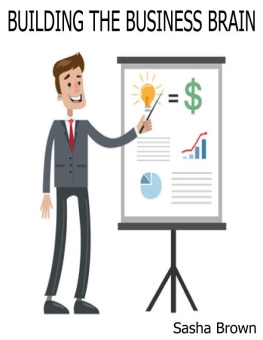Once I decided to follow up on my entrepreneurial urges the conversion from employee to entrepreneur was easier because I initially developed the entrepreneur spirit while working and utilized the time to keep an eye on situations and formulate the skills I would need in order to be successful.
You are able to transition to an entrepreneur mentality too and I trust you will.
Chapter 1:
Which Mindset Do You Have
Many small business owners and enterprisers got their beginning as an employee. They worked for somebody else. The issue is, if youve been an employee for years, it may be difficult to shake of the bonds of the employee mentality.
What does this mean?
If you've an employee mentality, you're more likely to look to other people to tell you what to do. Youll find it difficult to take responsibility for the success and failure of your endeavor.
You see, as an employee, you've no say about how the business is executed. You just work hard to prove your value so that you can stay employed.

Which One Are You
If you're an entrepreneur or business owner, you think much differently. Essentially the buck stops (and begins) with you. You're responsible for the success and failure of your endeavor. And you are the one who makes all the huge decisions (including who to designate littler decisions to!).
To discover if you're thinking like an employee or an entrepreneur, take this fast quiz:
Do you confine your tasks/responsibilities to a subset of what is required for your business to flourish?
Do you base your life-style on your revenue?
If a money setback happens, do you shrink your budget to adapt to the reduction in revenue?
Do you constantly seek outside advice to make even daily decisions?
If you responded yes to most of these queries, chances are you've an employee mentality. Heres why those with an entrepreneur mentality would answer no.
Do you confine your tasks/responsibilities to a subset of what is required for your business to flourish?
Entrepreneurs understand that occasionally they have to do things in their business that are higher up or beneath their skill level. Their mental attitude is if it has to get accomplished, get it accomplished and they're not adverse to bundling up their sleeves and getting their arms dirty.
Do you base your life-style on your revenue?
Entrepreneurs will seek to develop their business, enlarge their line of products and broaden their services when money setbacks happen. They dont let themselves get to be or remain a victim of fiscal conditions.
If a money setback happens, do you shrink your budget to accommodate the reduction in revenue?
Entrepreneurs send out the payments for themselves first. They center on bringing in the money that supports the life-style they want and invest the rest into their business. That stated, they're likewise cognizant of and accept the fleeting sacrifices that may need to be made in order to achieve a goal.
Do you constantly seek outside advice to make even daily decisions?
Entrepreneurs handle their time and take responsibility for their actions. While they might seek out mentors to guide them to expanded growth, they're in control of their day-to-day actions and dont need somebody else to tell them what to accomplish or prompt them to accomplish it.
Lets look at some more differences
Monday mentality
Employees fear Monday. (Or, whatever the beginning day of their work week is.)
Entrepreneurs are not bolted into a work week. They approach each day as a different chance to go after their dreams.
Its not my problem mentality
Employees have this mentality they view everything on the job by whether or not it's their problem.
Entrepreneurs view everything as their duty as they have ownership of what is happening in their business.
T. G. I. F. (Thank Goodness Its Friday) mentality
Employees are constantly looking forward to their off days.
Entrepreneurs are forever seeking ways to extend their business even when they're not working they're considering ways to extend their entrepreneurial talents. They look forward to each day!
When am I going to receive a raise? mentality
Employees think that raises ought to come according to the calendar, instead of according to their work.
Entrepreneurs seldom consider when they'll receive an increase. They realize that the more they work towards helping other people the greater their reward will be.
Oh no, what now mentality
Employees set about meetings with an oh no mentality.
Entrepreneurs set about meetings with a mastermind mentality. They realize that excellent ideas come out of these meetings.
There are a lot more mindsets that we may compare. As a matter of fact if a few have come to mind for you as you read this write them down.

Foreword
Among the hardest transitions for individuals is to move from the employee to the entrepreneur mentality. The idea of getting on your own, getting your own business is fantastic.
It's the desire of a lot of individuals to leave their jobs and get to be successful business owners.
However, is there a transition that has to be made from the employee mentality to the entrepreneur mentality?
Its really exceedingly crucial that you bear this entrepreneur mentality to succeed in business on your ownbecause most of the principles you'll need to succeed are based off of being a true entrepreneur.
And there are gigantic differences between that and an employee mentality, Im not pulling your leg and we will look at it here.
Chapter 3:
Learn To Listen to Customers
Watch and learn from your people you work with because they frequently demonstrate the habits you'll need to have when you're living the life of an entrepreneur like how to listen to customers.

Notice What People Want
There's a lot of discussion about listening these days. Listening is among the most crucial skills that you are able to learn. If you are able to really stop and listen to your customers, you are able to pave the path to ongoing business success.























